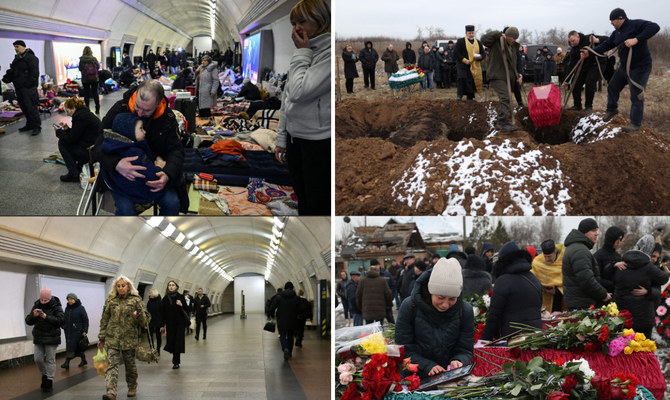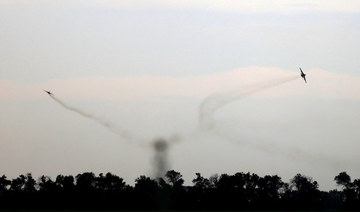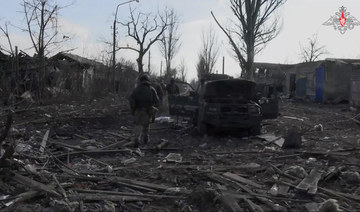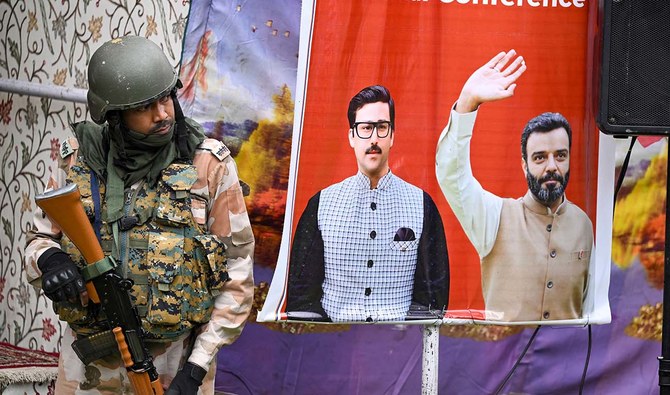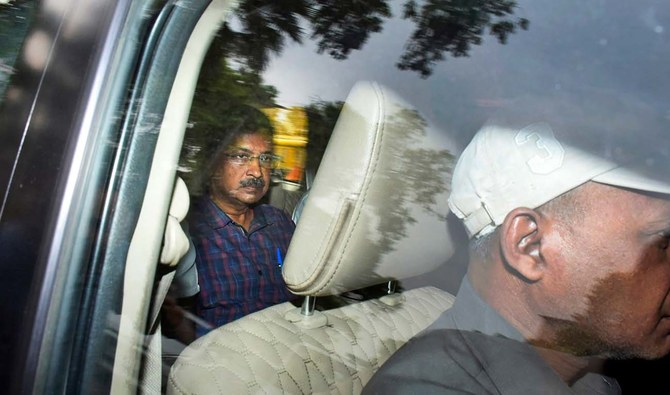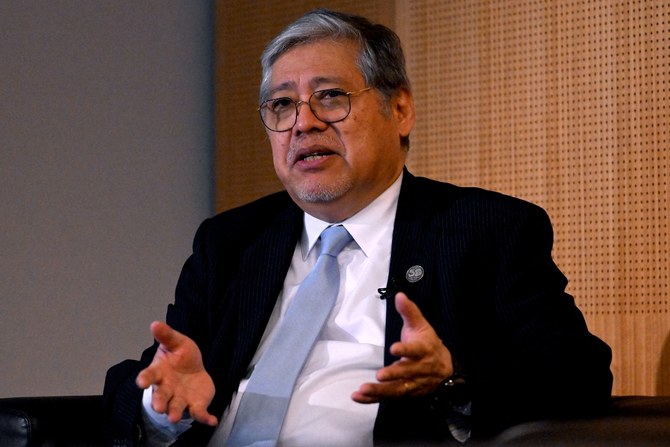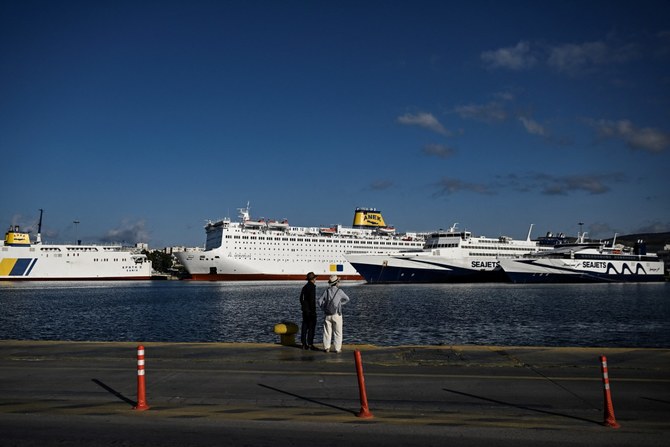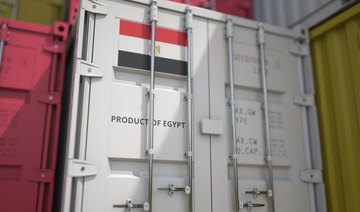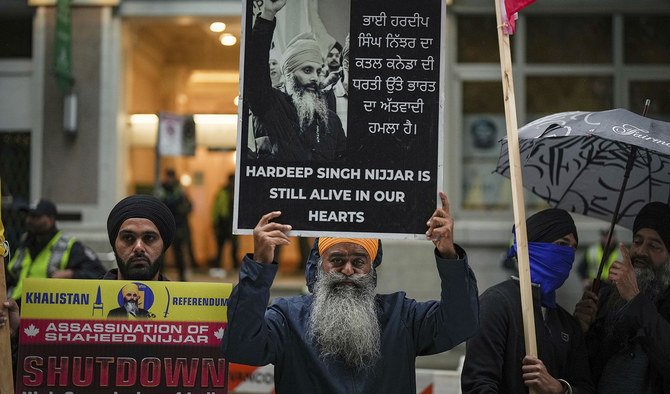KYIV: Ukraine on Saturday marked two years since Russia’s invasion, entering a new year of war weakened by a lack of western aid while Russia is emboldened by fresh gains.
When Russian President Vladimir Putin announced a “special military operation” at dawn on February 24, 2022, many expected Moscow’s victory within days, but Ukraine fought back, forcing Russian troops into humiliating retreats.
But Ukraine has suffered setbacks with the failure of its 2023 counteroffensive. The Russian army has in turn built up a position of strength thanks to booming war production, while Ukraine’s troops are short of manpower and running low on Western-supplied ammunition for artillery and air defenses.
President Volodymyr Zelensky said Friday that decisions on arms supplies have to be “the priority.”
Saturday’s anniversary will see visits by Western leaders including EU commission chief Ursula von der Leyen, but the overall picture remains bleak for Kyiv due to the US Congress blocking a vital $60 billion aid package. This has come on top of delays in promised European deliveries.
US President Joe Biden renewed calls for Republican lawmakers to unblock the additional funding, warning that “history is waiting” and “failure to support Ukraine at this critical moment will not be forgotten.”
Russia is attacking hard in the east, with the destroyed town of Maryinka near Donetsk the latest hotspot after it captured the heavily fortified town of Avdiivka on February 17.
Ukraine’s economy has also been hit by a border blockade by Polish farmers that Kyiv says threatens exports and has held up deliveries of weapons.
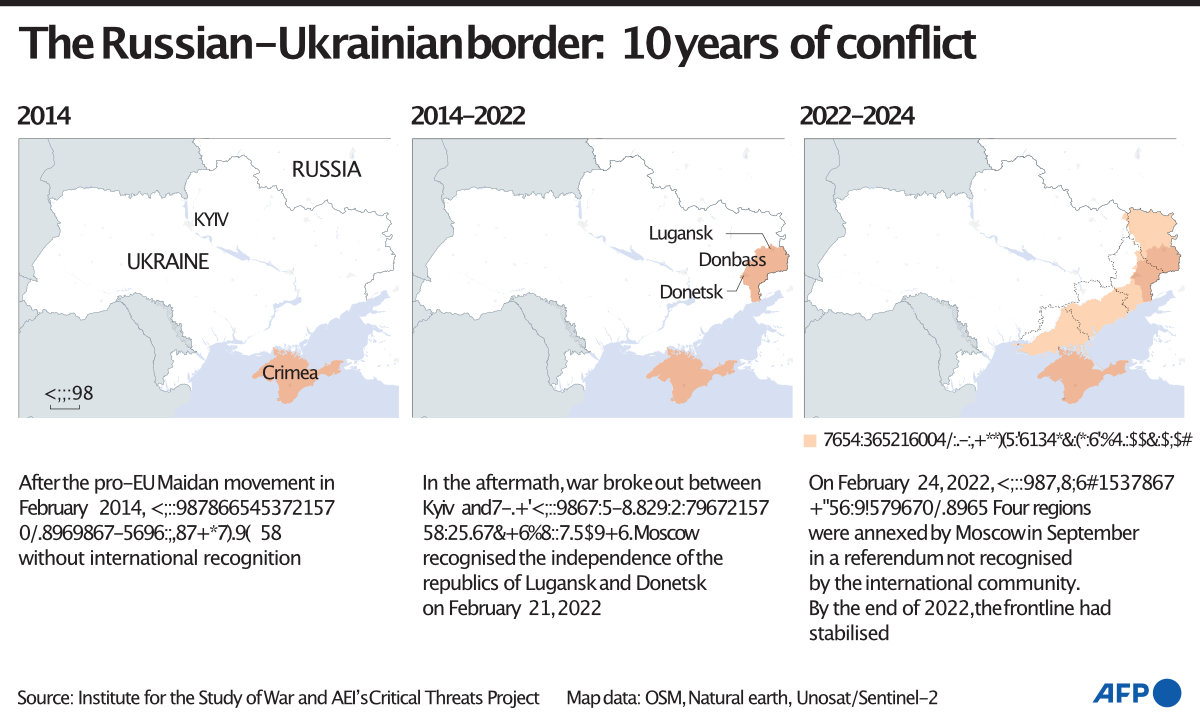
In Kyiv, the mood was grim but still defiant as people said they had grown accustomed to wartime conditions.
“For women of Ukraine, this is our heartache — for our husbands, for our children, for our fathers,” said nutritionist Olga Byrko in Kyiv.
“I would really like this to end as quickly as possible.”
“Yes of course we have learned to live with it... now the war is our life,” said Yuriy Pasichnyk, a 38-year-old businessman.
“I think we need to have more weapons so that we can drive this evil spirit out of our land and start rebuilding our Ukraine,” said 51-year-old Kostyantyn Gofman.
Ukraine needs almost half a trillion dollars to rebuild towns and cities destroyed by Russia’s invasion, according to the latest estimate by the World Bank, European Union, United Nations and Ukrainian government.
Ukraine has estimated that around 50,000 civilians have been killed.
Neither side has given numbers for military deaths and injured, while both claim to have inflicted huge losses.
In August 2023, The New York Times quoted US officials as putting Ukraine’s military losses at 70,000 dead and 100,000 to 120,000 injured.
Leaked US intelligence in December indicated that 315,000 Russian troops had been killed or wounded.
On the eastern front, morale is low as outnumbered and outgunned Ukrainian troops are ceding ground to Russian forces.
“We are running out of shells and the Russians keep coming. Lots of our comrades are injured — or worse. Everything is getting worse and worse,” said one soldier near Bakhmut, speaking on condition of anonymity.
Moscow has massively ramped up its arms production and received drones from Iran, while Kyiv says it has confirmed Russia’s use of North Korean missiles.
Zelensky said in December the military wanted to draft up to 500,000 more troops. A bill to broaden mobilization has caused wide public fear.
The conflict has thrown Russia into even greater isolation from the West, with the United States and its allies imposing a slew of sanctions.
But Putin has brushed off the fallout and hailed the troops as “true national heroes.”
He has used the war years to rally patriotism and mount an even harsher crackdown on dissent, with few daring to voice opposition to the war.
The death in prison of opposition leader Alexei Navalny has removed Putin’s arch-foe, and he is set to extend his term in office in elections next month.
On the streets of Moscow, most people told AFP they back the soldiers fighting in Ukraine.
“I’m proud of our men,” said 27-year-old Nadezhda, an environmental engineer.
“Of course I am anxious for them, but it’s a pleasant feeling that they are doing great, they are out there fighting for our country.”
One of the few to give an alternative opinion, was Konstantin, a drama teacher working as a waiter, who said: “I’m against any war. Two years have passed and it annoys me that people can’t talk to each other and are still at war.”



